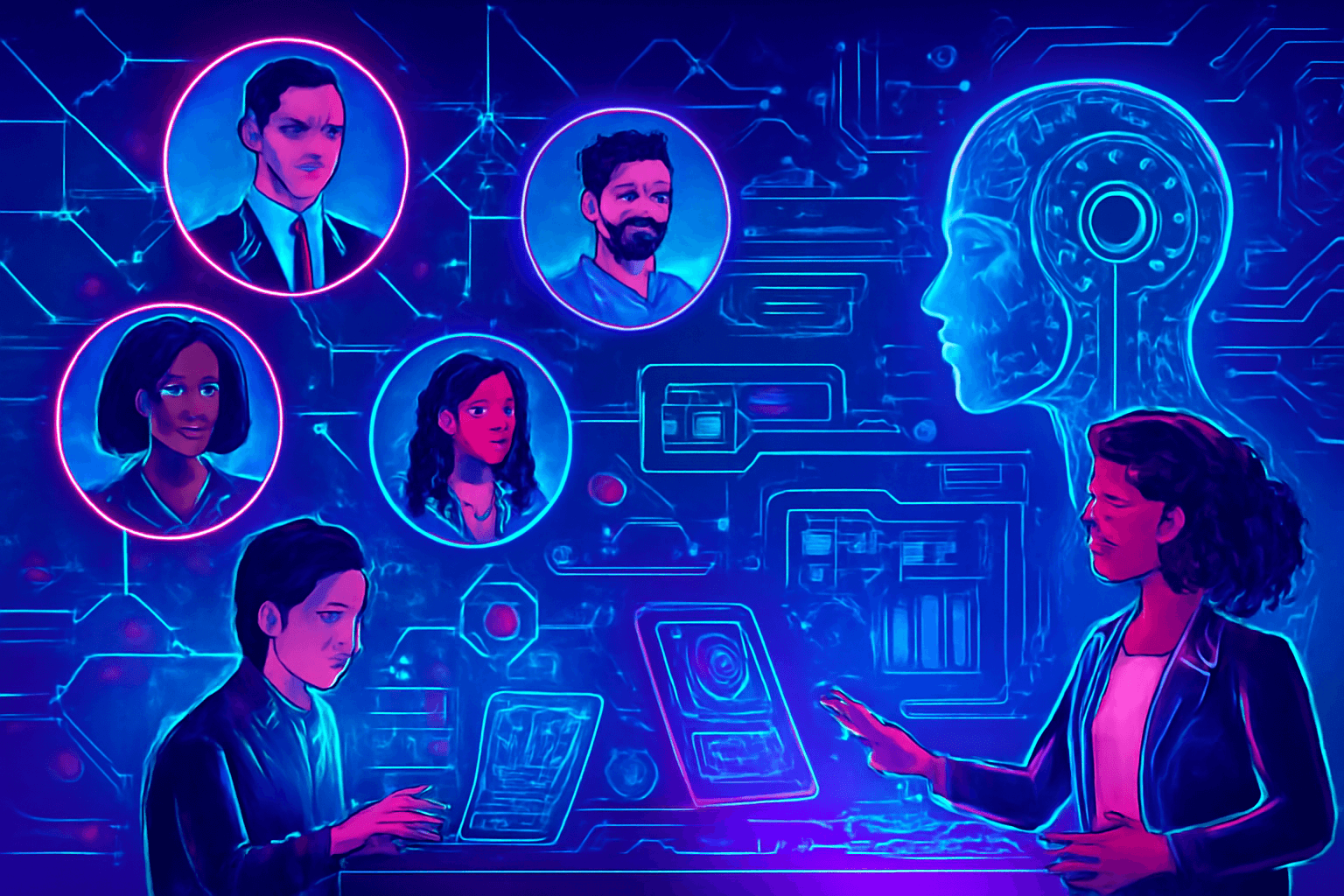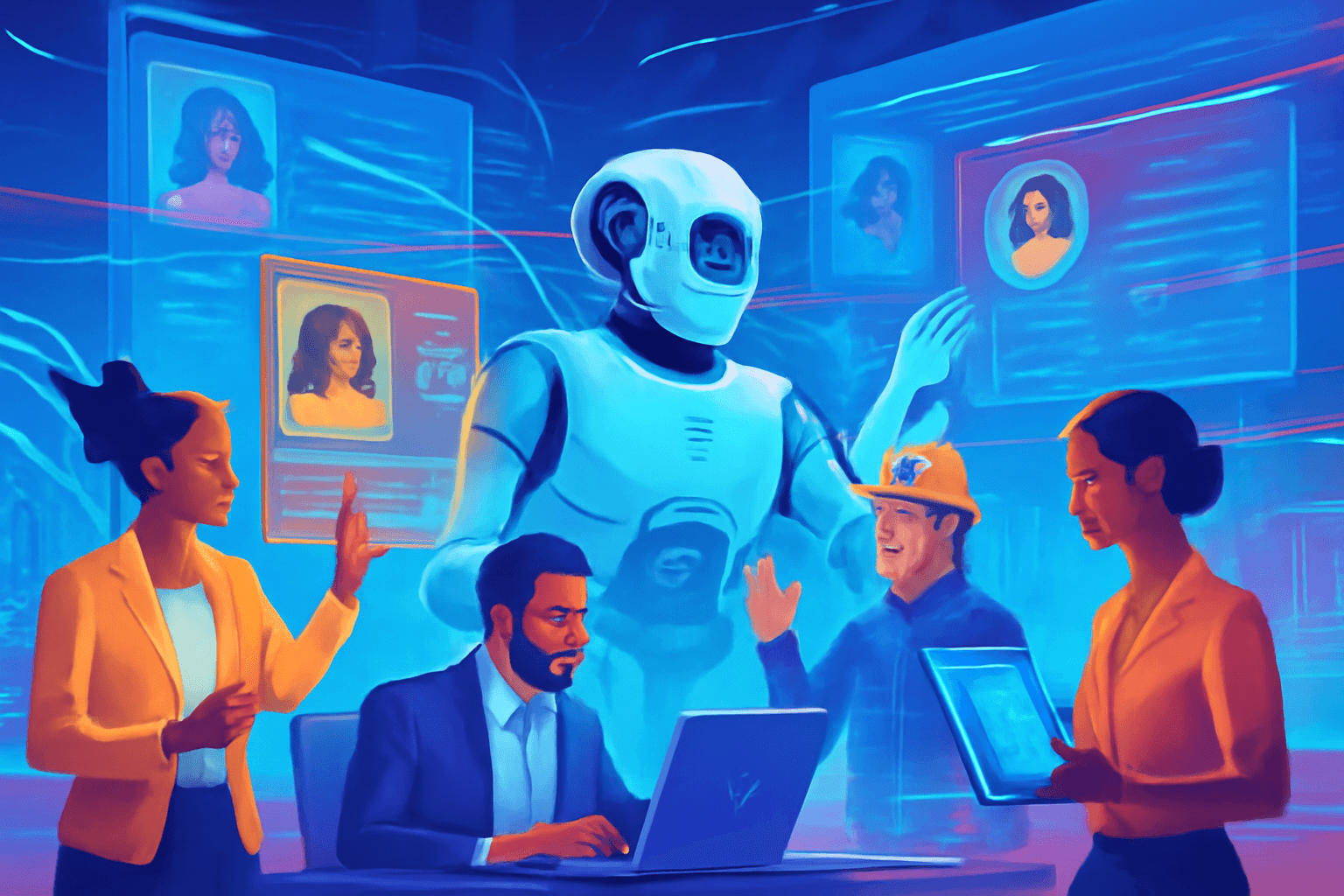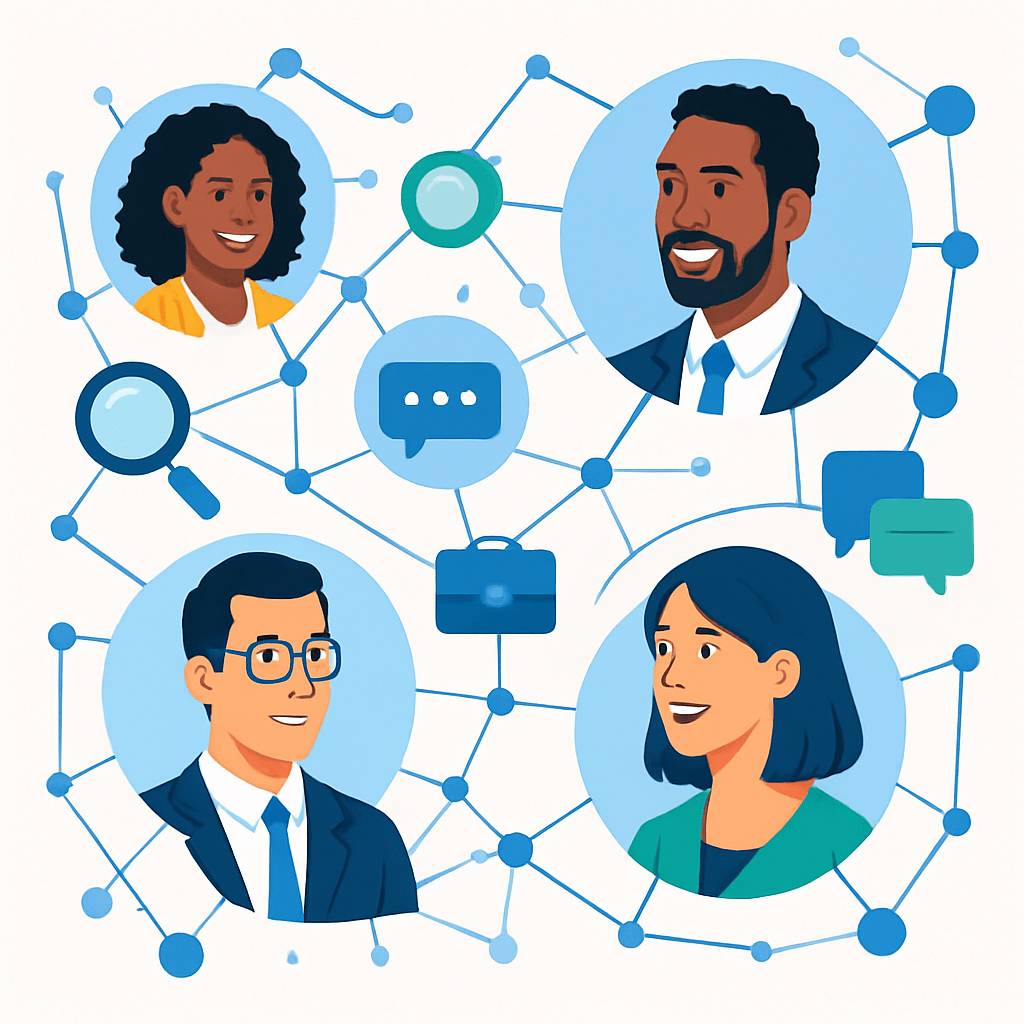Introduction: The New Era of Talent Sourcing
In 2025, hiring the right people isn’t just a strategic business need — it’s a survival requirement. The rules of recruitment have changed dramatically over the past few years, driven by rapid technological advances and an increasingly competitive global talent market. One innovation stands tall in this transformation: Artificial Intelligence (AI).
AI has moved beyond being a buzzword or a “nice-to-have” tool in recruitment. Today, it’s an essential part of how leading organizations find, evaluate, and hire top-tier talent. Businesses that invest in AI-driven recruitment tools aren’t just improving efficiency — they’re fundamentally changing how they connect with people.
Why AI Matters in Sourcing Today
Hiring used to be largely reactive — a position opens, HR posts a job ad, and waits for applications. In competitive markets, this approach is too slow. Every unfilled role can cost companies thousands in lost productivity, project delays, and missed business opportunities.
AI flips this model on its head. Rather than waiting for applications, AI tools constantly scan talent pools — both active job seekers and passive candidates — identifying those with the right mix of skills, experience, and potential.
For example:
-
AI can browse millions of online profiles across platforms like LinkedIn, GitHub, and Behance — far faster than any human recruiter.
-
Algorithms can parse through hundreds of resumes in seconds, flagging the best matches according to preset criteria.
-
Predictive models forecast future hiring needs based on company growth, turnover trends, and industry shifts.
This is proactive, predictive recruitment — and it’s already here.
Core Advantages AI Brings to Talent Sourcing
1. Speed Without Sacrificing Quality
Think about the old screening process: a recruiter might spend hours reading through stacks of resumes. Now, AI applicant tracking systems can analyze thousands of applications in minutes, providing recruiters a shortlist of candidates ranked by relevance.
But speed alone isn’t enough. Modern AI systems assess both hard and soft skills, matching candidates to culture fit as well as job requirements.
2. Reducing Bias in Hiring
Human unconscious bias has always been a challenge in recruitment. AI, when properly trained on diverse and representative data, can minimize bias by focusing solely on relevant skills and achievements.
For example, anonymizing candidate data (removing names, age, gender, and even universities attended) ensures initial screening is merit-based.
However, it’s important to note: if AI is trained on biased historical data, it can replicate those biases — which is why choosing ethical AI providers is critical.
3. Personalized Candidate Experiences
Imagine a prospective candidate receiving tailored job recommendations, updates about roles that match their interests, and automated updates about their application — all without overloading HR teams. AI enables exactly this level of personalization at scale.
A good candidate experience matters because today’s talent market is candidate-driven. According to a 2024 Reed Smith survey, 78% of job seekers are more likely to accept offers from companies that provide timely, transparent updates.
AI in Action: Examples From the Field
-
Chatbots for Initial Engagement: AI chatbots can answer candidate questions 24/7, schedule interviews, and collect preliminary data, freeing recruiters for more strategic tasks.
-
Predictive Analytics for Hiring Waves: Retail giants have started using AI to forecast seasonal hiring needs with astonishing accuracy, avoiding both understaffing and overstaffing.
-
Video Interview Analysis: AI can analyze recorded interviews for speech clarity, emotional cues, and skill-specific keywords. While still controversial, early adopters report faster decision cycles.
At Hirvix, we’ve integrated AI screening into our sourcing process so clients receive shortlists that are both highly relevant and diverse. AI does the heavy lifting, but human expertise ensures nuance and culture fit are never overlooked.
Challenges and Considerations
AI is powerful, but it’s not a magic bullet. There are ethical and technical considerations:
-
Bias Risks: Poorly trained AI can perpetuate inequalities — rigorous auditing is a must.
-
Candidate Trust: Transparency about the use of AI in hiring builds credibility.
-
Regulatory Compliance: In regions like the EU, AI use in recruitment falls under data protection laws (GDPR, AI Act), requiring careful compli
Looking Ahead: The Future of AI in Sourcing
By 2030, we might see AI agents that autonomously draft job descriptions, source candidates, conduct skills assessments, and recommend hires, leaving human recruiters to focus on relationship-building and final decision-making.
The companies that succeed will be those that blend AI efficiency with human empathy — the perfect balance of technology and the human touch.
Final Thoughts
AI isn’t replacing recruiters — it’s transforming them into supercharged talent advisors. At Hirvix, we believe the future of sourcing is not AI vs. humans, but AI plus humans. Businesses that embrace this collaboration will outpace the competition, hire better, and build stronger teams.




